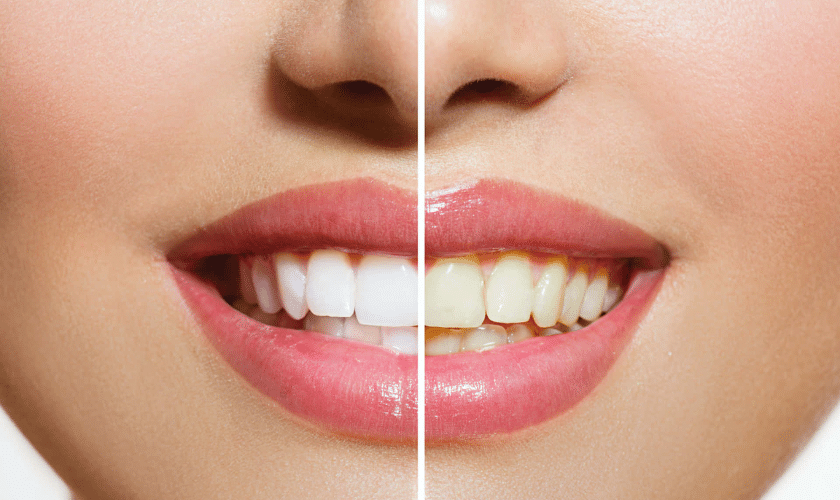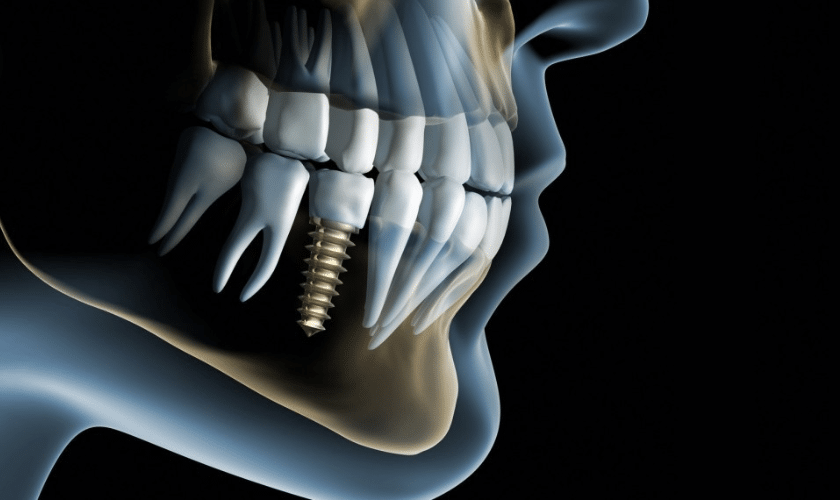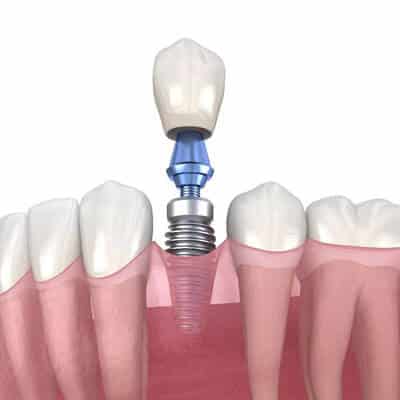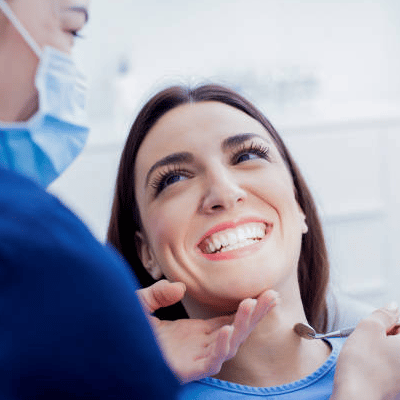
Welcome to a comprehensive guide on maintaining excellent oral hygiene, brought to you by a trusted dentist in Yorkville, IL. A healthy smile is not only aesthetically pleasing but also crucial for overall well-being. In this informative piece, we’ll delve into a range of practical tips and best practices endorsed by dental professionals. From daily brushing and flossing techniques to the importance of regular check-ups and a balanced diet, we’ll cover it all. These insights aim to empower you with the knowledge needed to achieve and sustain optimal oral health, ensuring a confident and radiant smile for a lifetime.
Daily Dental Care Routine
Regular and Proper Brushing:
- Brush your teeth at least twice a day, preferably in the morning and before bedtime.
2. Use a soft-bristled toothbrush and a fluoride toothpaste to clean all surfaces of your teeth and gums gently.
3. Brush in circular motions for about two minutes, ensuring you reach the front, back, and chewing surfaces of each tooth.
Flossing for Interdental Cleaning:
- Floss between your teeth and along the gum line at least once a day to remove plaque and food particles that brushing alone can’t reach.
2. Use a sufficient length of dental floss, and gently slide it between your teeth, curving it around the base of each tooth to clean the sides effectively.
3. Make sure to floss each tooth and avoid snapping the floss against your gums to prevent irritation.
Mouthwash for Additional Protection:
1. Incorporate an antiseptic mouthwash into your routine to further cleanse your mouth and kill bacteria.
2. Swish the mouthwash around in your mouth for about 30 seconds, then spit it out. Be sure to follow the instructions on the product label.
3. Mouthwash helps reduce plaque, fight bad breath, and provide an extra layer of protection against cavities and gum disease.
Following this daily dental care routine diligently contributes significantly to maintaining good oral hygiene and a healthy, vibrant smile.
Nutrition and Oral Health
Balanced Diet for Dental Health:
- Consume a well-balanced diet rich in fruits, vegetables, whole grains, lean proteins, and low-fat dairy products.
2. Include foods high in calcium, phosphorus, and vitamin D to promote strong teeth and bones.
3. Limit sugary snacks and beverages, as sugar can contribute to tooth decay and enamel erosion.
Hydration and Oral Hygiene:
1. Drink plenty of water throughout the day to keep your mouth hydrated and to wash away food particles and bacteria.
2. Water helps maintain saliva production, which is essential for neutralizing acids and protecting your teeth from decay.
Impact of Nutrition on Gum Health:
1. Vitamin C-rich foods, such as citrus fruits and leafy greens, help promote healthy gums and prevent gum disease.
2. Incorporate foods rich in antioxidants, like berries, nuts, and beans, which can reduce inflammation and improve overall oral health.
3. Avoid tobacco and excessive alcohol consumption, as they can lead to gum disease, oral cancers, and other dental issues.
Maintaining a nutritious diet, staying hydrated, and making healthy food choices are vital aspects of oral hygiene that significantly influence your dental health and overall well-being.
Regular Dental Check-ups
Frequency and Importance of Check-ups:
- Aim for a dental check-up at least twice a year, or as recommended by your dentist based on your oral health needs.
2. Regular dental check-ups are crucial for the early detection and prevention of dental issues like cavities, gum disease, oral cancer, and more.
3. Routine visits allow your dentist to monitor your oral health, provide professional cleanings, and offer timely advice on maintaining good oral hygiene.
Components of a Routine Dental Check-up:
1. A comprehensive examination of your teeth, gums, tongue, and mouth to check for any abnormalities or signs of dental problems.
2. X-rays and other diagnostic tests to detect issues not visible to the naked eye, such as cavities between teeth or issues with the jawbone.
3. Professional cleaning to remove plaque and tartar buildup, contributing to a healthier mouth and fresher breath.
Addressing Dental Fears and Anxiety:
1. If you experience dental anxiety, communicate this to your dentist. They can take steps to ensure your comfort during the visit.
2. Dentists can explain procedures in detail, use gentle techniques, or even offer sedation options to ease anxiety and make the experience more pleasant.
3. Addressing fears allows for a more positive outlook on dental check-ups, encouraging regular visits and promoting better oral health.
Regular dental check-ups are a cornerstone of preventive dental care, enabling early detection and intervention to maintain optimal oral health and a beautiful smile.
Preventive Dental Measures
Importance of Dental Hygiene Education:
1. Dental professionals educate individuals on proper oral hygiene practices, emphasizing the correct way to brush, floss, and use mouthwash.
2. Providing information on the benefits of a balanced diet and the importance of reducing sugary snacks and beverages encourages better oral health habits.
3. Education empowers individuals to take responsibility for their oral health and make informed decisions to prevent dental issues.
Regular Dental Cleanings and Examinations:
1. Routine dental cleanings by a hygienist remove plaque, tartar, and stains that regular brushing and flossing may miss, promoting optimal oral health.
2. Regular dental examinations allow for the early detection of potential issues like cavities, gum disease, or signs of oral cancer, enabling timely intervention and treatment.
3. These preventive measures help maintain healthy teeth and gums, preventing major dental problems in the long run.
Protective Treatments:
1. Dental professionals offer protective treatments such as dental sealants, fluoride applications, and mouthguards to prevent dental issues.
2. Sealants protect vulnerable areas of the teeth from decay, fluoride strengthens tooth enamel, and mouthguards provide protection during physical activities.
3. By utilizing these protective treatments, individuals can significantly reduce the risk of cavities, enamel erosion, and dental injuries.
Emphasizing preventive measures through education, regular check-ups, and protective treatments is essential for maintaining good oral health and preventing potential dental problems.
Handling Dental Emergencies
Immediate Action and Contacting a Dentist:
1. In a dental emergency, it’s crucial to take immediate action. Common emergencies include severe toothache, knocked-out teeth, broken teeth, or a dental abscess.
2. Contact your dentist or an emergency dental clinic promptly to explain the situation and seek immediate advice or an emergency appointment.
First Aid and Pain Management:
1. While waiting for dental care, you can take certain first aid steps to manage pain and minimize damage.
2. For a knocked-out tooth, gently rinse it with water, keeping the tooth’s root intact, and try to reinsert it into the socket if possible. If not, store it in milk or saliva and seek immediate dental care.
Handling dental emergencies promptly and effectively can make a significant difference in saving a tooth and preventing further complications. It’s important to seek professional dental help as soon as possible in any emergency situation.
Dental Care for Different Age Groups
Children and Adolescents:
1. Establish good oral hygiene habits early, teaching children to brush their teeth twice a day using a fluoride toothpaste and proper brushing techniques.
2. Children should receive their first dental check-up by their first birthday or within six months of the eruption of their first tooth. Regular check-ups help monitor development and address concerns promptly.
Adults and Seniors:
1. Maintain regular dental check-ups, typically twice a year, to monitor oral health and address issues like cavities, gum disease, or oral cancer that can affect adults.
2. For seniors, who may experience challenges like dry mouth or gum recession, it’s important to adapt oral care routines and use products designed to address specific concerns of aging, such as prescription fluoride toothpaste.
Adapting dental care practices according to age ensures appropriate preventive measures and care for each life stage, promoting lifelong oral health.
Specialized Dental Hygiene Tips
Oral Hygiene for Braces or Orthodontic Treatments:
1. Use interdental brushes, floss threaders, or water flossers to clean between braces and wires.
2. Brush teeth at different angles to ensure thorough cleaning, and use a fluoride mouthwash to strengthen enamel.
Oral Hygiene for Individuals with Dental Implants:
1. Clean dental implants and the surrounding area gently with a soft-bristled brush and non-abrasive toothpaste.
2. Regularly visit the dentist for professional cleanings and check-ups to ensure the implants are in optimal condition.
Specialized dental hygiene is essential to maintain the health and longevity of specific dental treatments, ensuring a healthy and functional smile.
In conclusion, maintaining good oral hygiene is a lifelong commitment that evolves with age and specific dental needs. From establishing healthy habits in childhood to adapting to specialized care as we age, oral health significantly impacts overall well-being. Regular dental check-ups, balanced nutrition, and immediate attention to emergencies are fundamental. Education and early intervention are paramount in preventing dental issues. By embracing these practices and considering individual requirements, we can achieve a radiant smile and lasting oral health. Remember, a proactive approach and collaboration with dentist in Yorkville, IL, pave the way to a confident and vibrant smile throughout life.











